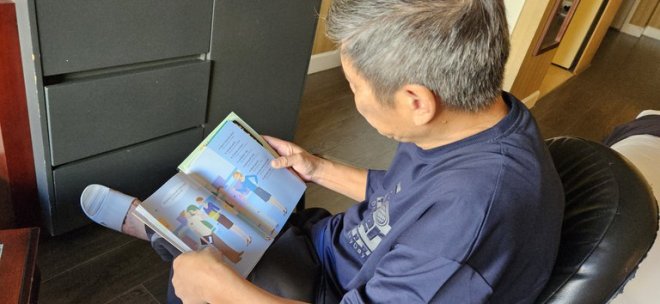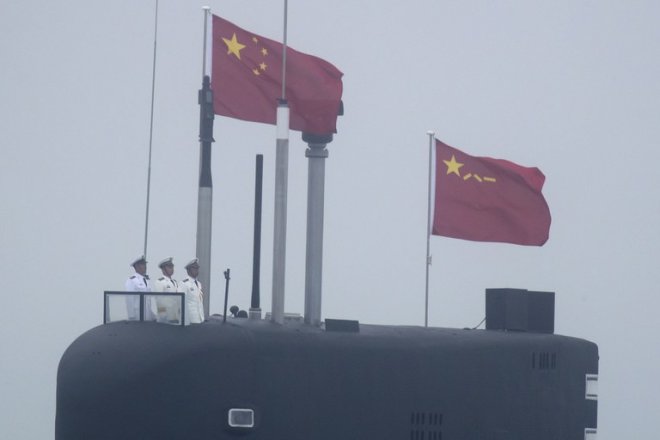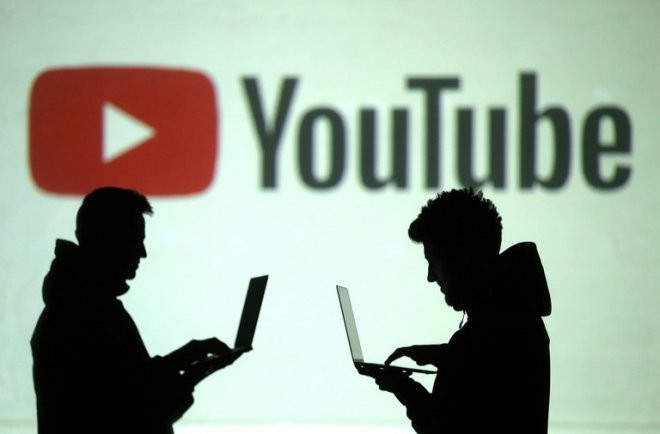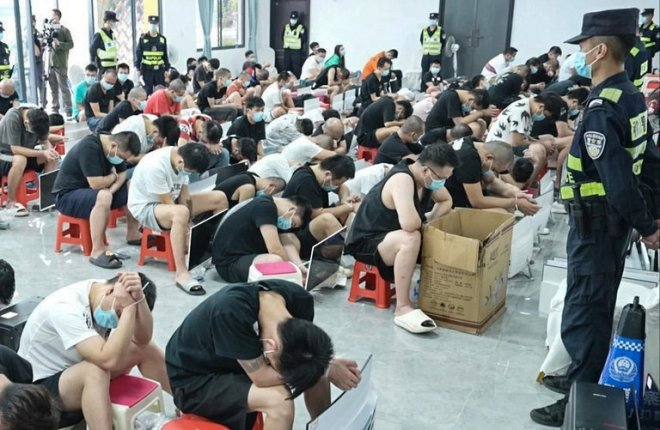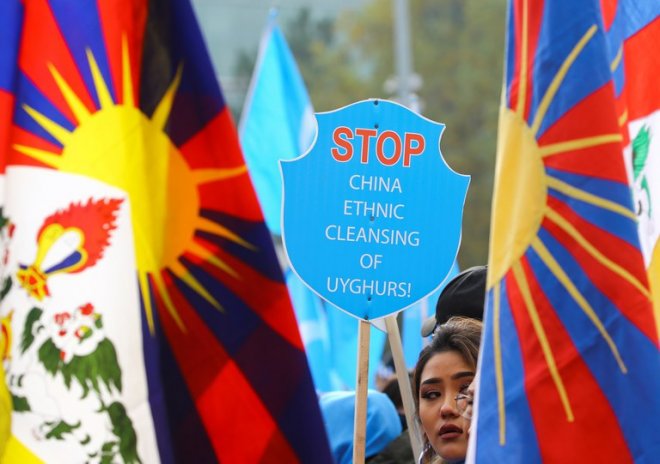China's rights lawyers volunteer to help wave of lockdown protest detainees
Chinese human rights lawyers have been scrambling to assist the friends and families of people arrested during a wave of anti-lockdown protests over the weekend, many of whom have little experience being treated as dissidents by Chinese authorities."So many people have been calling," attorney Wang Shengsheng told RFA on Tuesday. "Our phones were blowing up because people had lost contact with their friends, and we found that people had been taken away in many different places, including Shanghai, Beijing, Ningbo, Kunming, Yunnan and Guizhou."
The rush of calls came after Wang and nine other lawyers published a list of attorneys offering to volunteer to help people detained for protesting China’s “zero-COVID” restrictions or mourning the victims of a Nov. 24 lockdown fire in Xinjiang"s regional capital, Urumqi.
"The main reason [for their being detained] was that they had paid their respects to the victims of the fire in Xinjiang," Wang said. "They would express their condolences or empathy by holding up a blank sheet of paper, only to be very quickly detained.
"Some people couldn"t understand why this had happened, and were shocked and hurt -- they never thought they could come to any harm," she said.
Wang said the lawyers had also received a number of threatening phone calls, with unidentified callers warning them "not to be taken advantage of."
‘I want to thank them’
The ruling Chinese Communist Party, faced with the biggest challenge to its rule in decades, is saying that the "white paper" protests are the work of "foreign forces" infiltrating China, a notion that has been met with widespread derision among protesters and social media users.
Some lawyers declined to take part in the volunteer network, believing they would risk losing their license to practice law by participating, as happened to many attorneys who spoke up in favor of human rights, or helped political dissidents and other marginalized groups considered a stability risk by authorities.
"A fellow lawyer said it wasn"t appropriate and reminded me of the risks, but ... I just want to provide them with whatever help I can," Wang said. "If I didn"t, I would regret it hugely ... because these people stood up to express something, not for themselves [but for others]."
"I want to thank them and ... do anything in my power to support them at this time, or I wouldn"t be able to live with myself," she said.
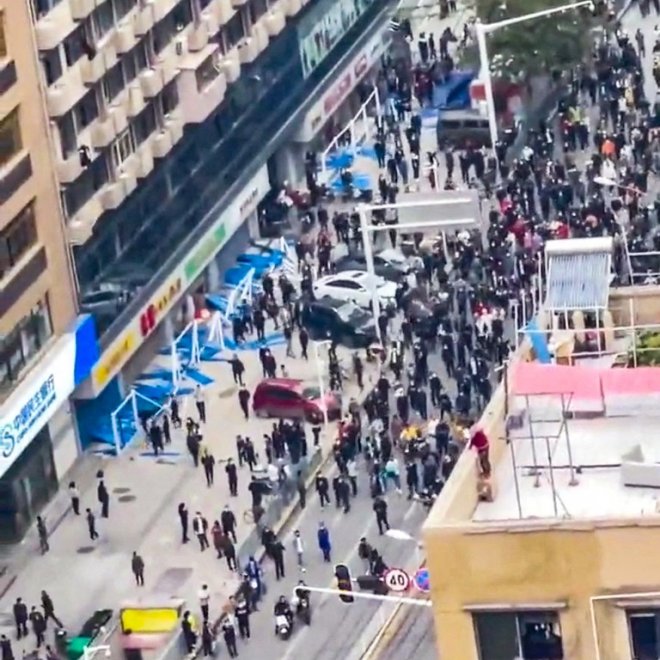 Residents march, some tearing down fences which were set up under the COVID-19 lockdown, in Wuhan, Hubei province, China, in this still image from undated video released Nov. 27, 2022. Credit Reuters‘Administrative detention’
Residents march, some tearing down fences which were set up under the COVID-19 lockdown, in Wuhan, Hubei province, China, in this still image from undated video released Nov. 27, 2022. Credit Reuters‘Administrative detention’A resident of the central city of Wuhan who gave the family name Wang said his girlfriend Li Xiaoxiao was among those detained at a protest on Hanzheng Street on Sunday night.
He didn"t track her down until Tuesday afternoon, when she called from a local police station to say she was being held under administrative detention, which allows police to hold perceived "troublemakers" for up to 15 days without trial.
"She said she had been in there for five days, then checked with the person next to her to make sure, because actually she"d been in there for two-and-a-half days," Wang said. "Then there was a young man"s voice saying harshly and sternly "Who is that?", and my girlfriend started crying and told me she wouldn"t pick up again.
"[When I tried to call her back], she told me if I didn"t hang up the phone right now, she would break up with me," Wang said. "I was sure that she was being threatened."
Wang said he was shocked that somebody could just be taken away and their loved ones not told where they were for almost three days.
"We knew nothing of her situation,” he said. “I"m a human being, and yet I don"t even have the right to protect those closest to me. … What is the point of my life then?"
Reports of abuse
Another lawyer, Xu Renxi, said some of the detainees have already been released, while others reported being beaten up by the police.
Many of those who called the lawyers had no idea what to do when their loved ones were arrested, while others were shocked that people had been detained who just happened to be in the same location as a protest.
Xu, who doesn"t typically do public interest work, said they were worried about volunteering, but decided to help anyway.
"I"d be lying if I said I wasn"t afraid," Xu said. "Anyone would be in a situation like this. I"ve had almost zero experience with rights protection work."
An international media group said two European journalists -- Ed Lawrence of the BBC and Michael Peuker of Radio Télévision Suisse – were also detained while covering anti-lockdown protests in Shanghai on Nov. 27, with Lawrence allegedly assaulted in the process.
"BBC correspondent Ed Lawrence was reporting on anti-lockdown protests in Shanghai when he was arrested, handcuffed and assaulted by Chinese police," the International Federation of Journalists said in a Nov. 28 statement.
One online video clip shows Lawrence being handcuffed by at least five police officers and forcefully escorted down a street by an unmasked policeman as he calls for his associate to contact the British Consulate, the group said.
Lawrence was released after several hours. But the BBC has raised concerns over the attack and arrest of an accredited journalist. It said Lawrence was beaten and kicked by police.
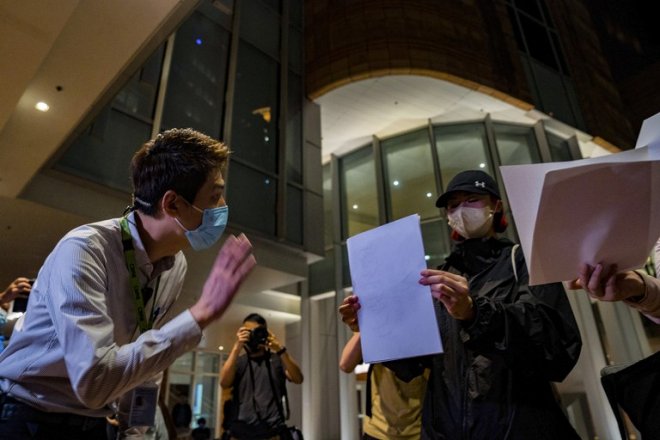 A university staffer checks the identity of protesters during a demonstration at the University of Hong Kong in Hong Kong, Nov. 29, 2022. About a dozen people gathered at the university, chanting against virus restrictions and holding up sheets of paper with critical slogans. Credit: Associated Press‘Serious’ attack of media
A university staffer checks the identity of protesters during a demonstration at the University of Hong Kong in Hong Kong, Nov. 29, 2022. About a dozen people gathered at the university, chanting against virus restrictions and holding up sheets of paper with critical slogans. Credit: Associated Press‘Serious’ attack of mediaChinese Foreign Ministry spokesman Zhao Lijian said the BBC"s account of the incident was "not true," claiming that Lawrence hadn"t revealed his identity at the time of his detention.
Peuker of Radio Télévision Suisse said via social media that he and his cameraman were briefly stopped by police at the conclusion of their live broadcast, with officers taking their identification documents and briefly confiscating their equipment.
After a brief period, Peuker and the cameraman were permitted to leave police custody and had their equipment returned, the International Federation of Journalists said, adding that some protesters have been calling for an end to widespread censorship and suppression of the media, as well as opposing the government"s zero-COVID policy.
"The targeting of foreign journalists for reporting on issues in the public interest is yet another serious attack on press freedom in China, where media workers frequently fall victim to violence, detainment and harassment from authorities," the group said.
"The IFJ condemns the detention of Michael Peuker and the arrest and assault of Edward Lawrence and urges the Chinese government and police to ensure the safety and security of all journalists."
Protests spread
The protests spread to universities in Hong Kong on Monday, with students coming out in support of the "white paper" movement.
"I think they are very brave," a Hong Kong student who took part in a campus protest to show solidarity with the mainland protests told RFA on Tuesday.
"They have been living under so much repression, with so many human rights lawyers arrested, and civil groups [targeted], even those concerned about environmental protection," the student, who gave only the nickname A Ming for fear of reprisals, said.
"Yet there are still so many people willing to stand up, which is amazing," he said, adding that Hong Kong"s own civil society has been decimated under a citywide crackdown on dissent in the wake of the 2019 pro-democracy and anti-extradition protests.
People brought blank sheets of paper, flowers and candles to commemorate the Urumqi fire victims at a theater in Central on Monday, while leaflets bearing the Bridge Man protest slogans were also seen at the scene.
A student surnamed Wong said people had been brave to come out, given the police"s record in dealing with protesters.
"Some things have to be done, and we"re not doing anything illegal," she said. "We still have our civil rights."
Shifting blame
Retired Shanghai teacher Gu Guoping said the authorities" claim that the white paper protests were instigated by "foreign forces" was a typical example of the Communist Party"s diversion tactics when faced with dissent.
Beijing made identical claims when faced with citywide protests in 2019.
"This is a way to deflect domestic conflict and shift the responsibility to foreigners," Gu told RFA. "But it"s inconsistent with the facts."
A Hunan-based current affairs commentator, who gave only the surname Li for fear of reprisals, agreed.
"The Communist Party was founded by foreign forces, because its guiding ideology is Marxism," Li said. "The hammer and sickle were borrowed from the former Soviet Union. Aren"t those considered foreign forces?"
Some online comments also took issue with the claim.
"Given that so many foreign forces have come to China, does that mean there"s no more quarantine?" one user asked.
Translated and edited by Luisetta Mudie.
[圖擷取自網路,如有疑問請私訊]
|
本篇 |
不想錯過? 請追蹤FB專頁! |
| 喜歡這篇嗎?快分享吧! |
相關文章
AsianNewsCast








